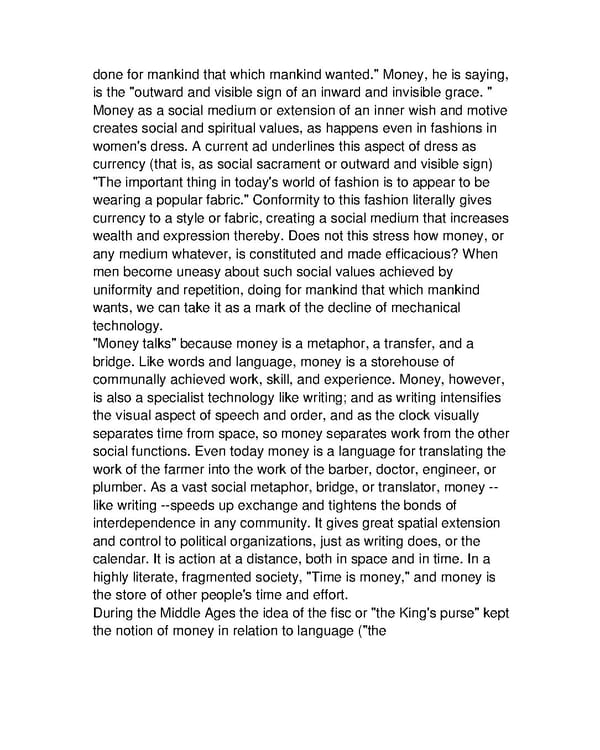done for mankind that which mankind wanted." Money, he is saying, is the "outward and visible sign of an inward and invisible grace. " Money as a social medium or extension of an inner wish and motive creates social and spiritual values, as happens even in fashions in women's dress. A current ad underlines this aspect of dress as currency (that is, as social sacrament or outward and visible sign) "The important thing in today's world of fashion is to appear to be wearing a popular fabric." Conformity to this fashion literally gives currency to a style or fabric, creating a social medium that increases wealth and expression thereby. Does not this stress how money, or any medium whatever, is constituted and made efficacious? When men become uneasy about such social values achieved by uniformity and repetition, doing for mankind that which mankind wants, we can take it as a mark of the decline of mechanical technology. "Money talks" because money is a metaphor, a transfer, and a bridge. Like words and language, money is a storehouse of communally achieved work, skill, and experience. Money, however, is also a specialist technology like writing; and as writing intensifies the visual aspect of speech and order, and as the clock visually separates time from space, so money separates work from the other social functions. Even today money is a language for translating the work of the farmer into the work of the barber, doctor, engineer, or plumber. As a vast social metaphor, bridge, or translator, money -- like writing --speeds up exchange and tightens the bonds of interdependence in any community. It gives great spatial extension and control to political organizations, just as writing does, or the calendar. It is action at a distance, both in space and in time. In a highly literate, fragmented society, "Time is money," and money is the store of other people's time and effort. During the Middle Ages the idea of the fisc or "the King's purse" kept the notion of money in relation to language ("the
 Understanding Media by Marshall McLuhan Page 151 Page 153
Understanding Media by Marshall McLuhan Page 151 Page 153